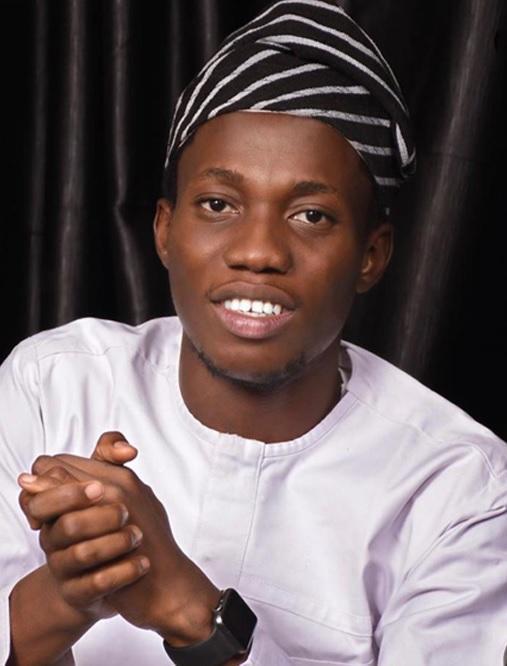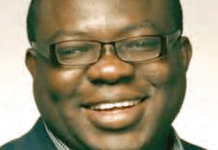
When winners of the 2021 Waislitz Global Citizen Awards, which recognise people who make extraordinary efforts to end indices of poverty, were announced, only one African made the list. That African was a Nigerian. And that Nigerian was Dr Abiodun Adereni, founder and CEO of HelpMum, a health service enterprise that provides essential pregnancy-related information, birth kits, and medical check-ups for women in rural areas.
Indeed, that global recognition that came the way of Adereni could not have come as a surprise to many pregnant women, nursing mothers and traditional birth attendants in most of Nigeria’s deprived and underserved communities. Since 2017, Adereni has been on an aggressive but strategic mission to eradicate maternal and infant mortality in Nigeria, using mobile technology and other low-cost digital innovations.
The social entrepreneur – as he prefers to be addressed – once declared, “As a young Nigerian doctor, I cannot accept that one woman dies every 10 minutes on account of pregnancy or childbirth. Neither can I accept that one out of five children will never reach the age of five. I know these deaths are preventable… A big part of the problem is the lack of access to clean space and affordable birth kits in remote underserved communities, as well as the broken healthcare infrastructure affecting those areas.”
Adereni, who has the audacious vision to make HelpMum become Africa’s leading mobile healthcare (mHealth) service provider before the year 2023, provides pregnant women in rural communities with health information and medical advice on how they can manage and treat pregnancy-induced hypertension and gestational diabetes. Moreover, since most of these women give birth with the help of traditional birth attendants – in mostly unhygienic environments – he also supplies them with the “HelpMum Clean Birth Kit”. The kit contains items needed for a safe home delivery, to avoid infections that may lead to the death of pregnant women. These birth kits are either distributed freely or at very low costs.
Adereni also leads his HelpMum team to register nursing mothers on the company’s vaccination tracking system. Through this tracking system, thousands of mothers receive regular reminders to present their children for immunisation, and also receive health information on the vaccines their children are receiving. This has significantly helped to increase immunisation rates and reduce vaccine preventable-childhood diseases and deaths in many of the communities.
Moreover, in realisation of the crucial place of traditional birth attendants (TBAs) in these rural communities, Adereni organises special trainings for them physically and through pre-recorded videos in indigenous languages. This gives the TBAs easy access to all necessary trainings from the comfort of their homes. Topics such as how to use the mucous extractor, how to prevent post-partum haemorrhage and many more are taught by Adereni and his team.
In addition, to facilitate easy access to the trainings, the TBAs are provided with free HelpMum mobile tablets that can be operated with or without wireless networks. Speaking of this, Adereni said: “We made sure we distributed these mobile tablets to experienced and influential traditional birth attendants so that they can use the technology to upskill colleagues in closest proximity to them, thereby cutting down the need for in-person training while still helping these TBAs to save the lives of mothers and their newborn children.”
Also, as a demonstration of the entrepreneurial dimension of HelpMum’s operation, Adereni leads the organisation to empower women (especially TBAs and community health workers) by encouraging them to serve as retailers of its birth kits. This way, they make a commission on each HelpMum Clean Birth Kit they sell.
Jolting realities
While Adereni might have received manifold recognitions, including financial rewards for his laudable enterprise, his reasons for dedicating his life to eradicating maternal and infant mortality in Nigeria were far from fame or fortune. On the contrary, he was jolted into action by the dismal conditions of pregnant women and infants in Nigerian rural communities.
According to Adereni, “Women who live in rural, underserved and deprived communities in Nigeria do not have access to safe and hygienic delivery due to lack of public health facilities, lack of clean birth kits and lack of adequate health information. These women do not present their children for immunisation at appropriate times thereby resulting in the death of these children before they reach the age of four.”
Corroborating these concerns, UNICEF says, “Nigeria’s 40 million women of childbearing age (between 15 and 49 years of age) suffer a disproportionally high level of health issues surrounding birth. While the country represents 2.4 per cent of the world’s population, it currently contributes 10 per cent of global deaths for pregnant mothers. Latest figures show a maternal mortality rate of 576 per 100,000 live births, the fourth highest on Earth. Each year approximately 262,000 babies die at birth, the world’s second highest national total. Infant mortality currently stands at 69 per 1,000 live births.”
It was in such alarming statistics that Adereni – who, incidentally, had studied Veterinary Medicine – found his ultimate purpose. And so committed is he to the cause of pregnant women, nursing mothers and infants that he would stop at nothing to improve their lot. For instance, in the peak of the COVID-19 pandemic in 2020, Adereni responded by leading HelpMum to manufacture and freely distribute thousands of protective masks to pregnant mothers and birth attendants. It was also within the period that he launched the first publicly available e-learning platform to train the birth attendants. These particular gestures were what attracted the attention of Waislitz Global Citizen Award organisers to Adereni. He was named winner of the Waislitz Global Citizen COVID-19 Response Award and presented a cash prize of $50,000.
Journey to impact
A graduate of the University of Ibadan (UI), Adereni’s foray into the world of pregnant women and nursing mothers had begun in a remarkable way. In 2017, he and his friends from UI had gone to a nearby rural community to teach pregnant women about diseases they could contract through animals. Unknown to him, on that particular outreach, he was to have a rendezvous with destiny – a call to a more impactful service to humanity.
According to him: “On that outreach, I got talking with a pregnant woman and when I asked her which hospitals or clinics pregnant women in the community go to for childbirth, she said there was none and pointed at the house of the only traditional birth attendant all the women in the community patronised.
“When I spoke to the traditional birth attendant, she told me that women in that community give birth on the floor because she didn’t have a hospital bed. Even worse, she was poorly trained and would often use the same medical equipment for multiple women. These were all causes of maternal and infant mortality.”
But that was not all. Adereni also found that the women who gave birth in the community had never heard of nor immunised their newborns. There and then, the passion to change the condition of the women and those in other rural communities in Nigeria was ignited in him. It was in a bid to solve the peculiar challenges of these women that HelpMum was birthed.
Awards and recognitions
Aside from the Waislitz Global Citizen Awards, Adereni has received several other recognitions locally and globally. He is a 2020 Facebook Community Accelerator Fellow and winner; a 2019 Google Impact Challenge winner; a United Nations Startup for SDGs winner; a Western Union Foundation Grantee (twice); a 2018 D-Prize Global Ambassador, 2018/19 LEAP Africa Social Innovators Programme Fellow; and a 2017 Tony Elumelu Foundation Fellow.
Adereni has also been featured on notable international media platforms. He has been featured on CNN, Disrupt Africa, Techpoint, TechCabal, UK Government digital and culture, and Nigeria Health Watch amongst others.










